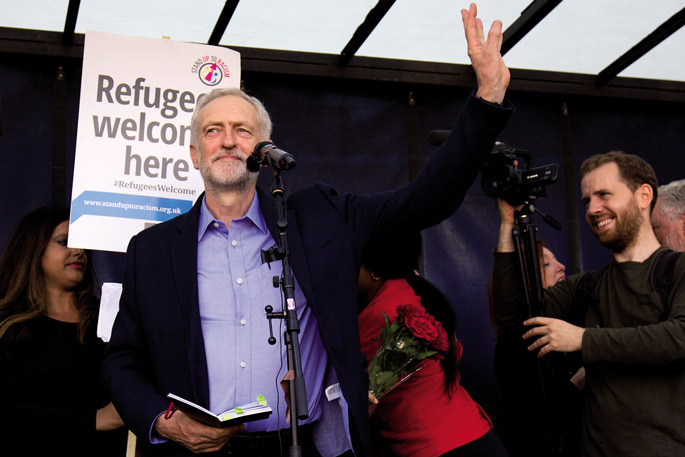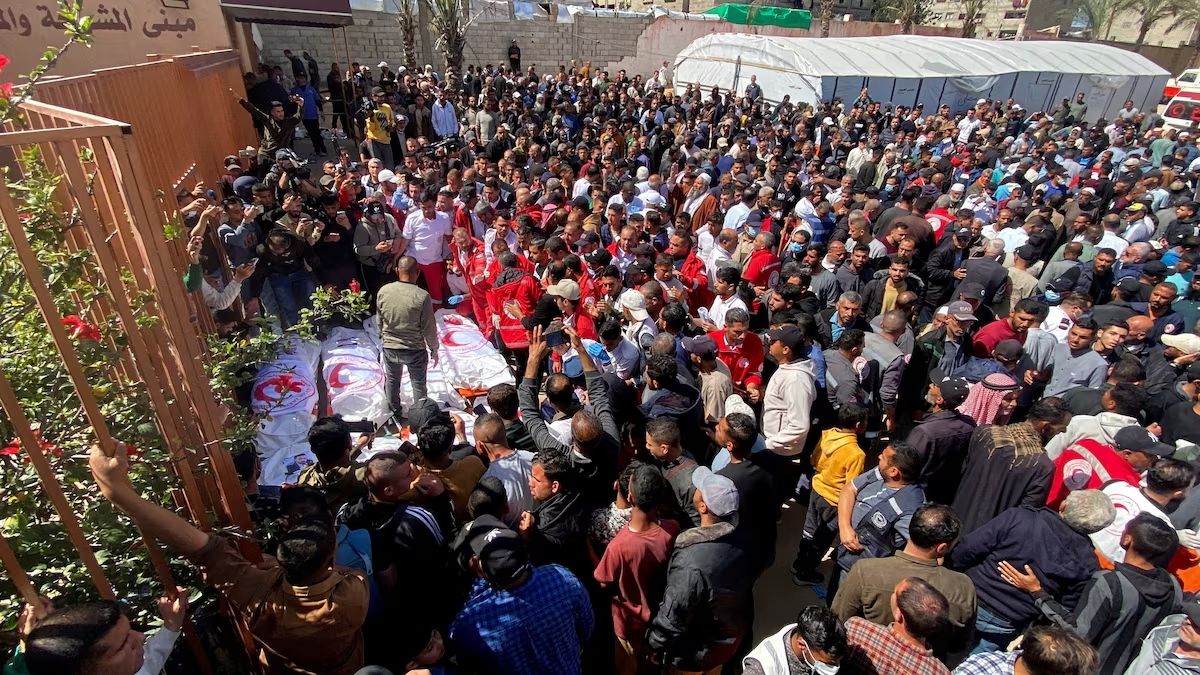The European left comes to the counter-attack: - More to the left!
- Without waiting for the results of the elections in Greece, Ireland and Spain, several prestigious European leaders, led by the German Oskar Lafontaine, have committed themselves to counterbalancing a ‘plan B’ with the prevailing neoliberal strategy today. Just that day, the British Labour Party has elected the most left-wing leader in Britain’s history.

If Lehman Brothers went bankrupt on 15 September, in 2008, the European left – let us speak in unison recognising that it is a very plural movement – has celebrated the seventh anniversary of the worst crisis of the last hundred years by turning the ship’s rudder to the left.
The British brand has chosen Jeremy Corbyn as the leader of the Labour Party, the most leftist of all that he has had throughout history. On the very day of his appointment, Saturday, 12 September, five well-known personalities have committed themselves to organising ‘Plan B’ to deal with a neoliberal policy that equates everything in the European Union as a cylinder.
The feast of L’Humanité, newspaper of the Communist Party PCF – Fête de l’Huma, among friends – wants to make every year a thermometer of the French left and more general of Europe. In it, the claim of ‘plan B’ has been realized.
The signatories are the French MEP Jean-Luc Mélenchon, founder of Parti de Gauche, known Jacobin in national affairs; the Italian Stefano Fassina, a MEP and recently resigned Deputy Minister of Economy, indignant at the policy established by Matteo Renzi; the former President of the Greek Finance Minister, Systantopoulou, the Russian language.
According to the call, it is urgent to learn the lesson of the financial coup that the elite of the European Union has given in Greece."This Europe generates only internal and interregional violence: enormous unemployment, strong social dumping, the mockery that the German leaders throw into Southern Europe (...) The European Union is fuelling the strengthening of the far-right and has become a tool of distribution for Europe.
It is Oskar Lafontaine who, in the signatories of this agreement, can present his strongest political career. In August, Lafontain proposed a plan B for the European left in connection with the defeat in Greece: “It would be unfair and arrogant to want to give moral lessons to Alexis Tsipras and Syriza. Following these experiences of the European Left, it is better to reflect on what conditions we can develop a democratic and left-wing policy in Europe.”
Leaving the euro or not, the euro versus drakma... Lafontain has proposed overcoming a debate that disagrees with the leaders of the left. In particular, it has proposed revitalising the European Monetary System in order to avoid the damage caused by excessive rigidity in the functioning of the euro, an instrument used between 1979 and 1993 before its creation.
On the other hand, faced with the leftists who want to give more and more strength to European unity, Lafontain believes that the road is decentralization, making self-criticism of what he has defended for a long time by saying that, and putting in front of us highly acclaimed experts such as the philosopher Jünger Habermas: “Democracy and decentralization are mutually dependent.”
Corbyn Gestures from London
In the August paper, Lafontain summed up the ‘intention of Plan B’: ‘We must change the way Europe works, we must remove the Central Bank, which has no democratic legitimacy, the ability to break democracy by just pressing one key. (...) The German Left should also realise that ‘If the euro dies, Europe has died’, the Merkelan mantra is a trap (...) Seeing what has been seen in Greece, if the Left wants a democratic and social Europe, it has to change its policy towards Europe and move on new paths’.
But, just as from Paris an appeal is made to work from Lafontaine, leaders talk about the European economy and social services, Jeremy Corbyn, elected by the Labour Party partners in Britain, speaks in his ‘Plan B’ of a much larger programme. It goes further.
In economics, cut out austerity measures and impose new taxes on the rich, as well as on the profits of companies. In teaching, in addition to prioritizing the public network, reinstate the scholarship system for students: Corbyn has apologised to students for the alleged supplanting of scholarships by Labour governments. It has also promised very concrete measures, if it wins, in housing, in social policy, in strengthening the public health network, in gender equality ...
But the most striking thing about the Europe of 2015 is not the very left-wing chapters of Corbyn’s social programme. What is even more striking is that the leader of a party that wants to govern dares to propose the nationalisation of energy companies and railways. And, of course, Britain is leaving NATO and paralysing the Trident atomic military programme.
Labour has not surprisingly chosen Corby, who holds in his hands a programme that looks more Troskist than Labour. He has a lifetime in the party, a parliamentarian, a critic but without abandoning the party. George W. in 2003 to attack Iraq. When Bush used Tony Blair as a palist alongside José María Aznar, Corbyn voted against.
Just as before entering into the struggle to lead Labour, he has always spoken clearly, criticizing Israel and defending Palestine as a driving force for the leftist leaders of South America. And yet some would have been surprised that on Saturday the party named him a leader, when the whole of Europe was in the chaos of migrants, before the afix of “Refugees welcomed here” (Here the fugitives are welcome) on the stage. Or because in an act of support for the English military killed in the war he remained silent in the anthem starting “Good save the Queen”.
Will Corby enter the sewing of the ‘Plan B’ claimed in Paris with his party? What more about Europe? A Basque? We will begin to see it from November onwards.
The debate starts on how a new policy is articulated: “To share health and create jobs, especially for young people; ecological transition and democratic regeneration of the European Union. Breaking the inhumane straits of the European treaties and creating new ones by overcoming the barriers of neo-liberalism. The cancellation of the budget concert. Reject the free trade agreement with the US TTIP.” In a word, a great job at hand.
Londres, 1944. Dorothy izeneko emakume bati argazkiak atera zizkioten Waterloo zubian soldatze lanak egiten ari zela. Dorothyri buruz izena beste daturik ez daukagu, baina duela hamar urte arte hori ere ez genekien. Argazki sorta 2015ean topatu zuen Christine Wall... [+]
Gozamen aparta bezain deskribatzeko zaila dakar, norbaiten hitzak irakurri edo entzun ostean, zera pentsatzeak: “Horixe zen neu aurreko hartan azaltzen saiatu nintzena!”. Idazlea eta itzultzailea da María Reimóndez, eta galegoz aritzen da, hizkuntza... [+]
Bizitza erdigunean jartzeko abagunea ikusi genuen feministok zein ekologistok Covid-19 pandemia garaian. Ez ginen inozoak, bagenekien boteretsuak eta herritar asko gustura itzuliko zirela betiko normaltasunera. Bereziki, konfinamendu samurra pasa zutenak haien txaletetan edo... [+]
Egypt ' s urban planning plan for the Gaza Strip has recently been expanded. A drawing shows the streets, buildings and imagery of the future on a reality that still smells of shrapnel and explosives. The urban planning proposal, used as another bomb shot. Individual house... [+]
Wikipedian bilatu dut hitza, eta honela ulertu dut irakurritakoa: errealitatea arrazionalizatzeko metodologia da burokrazia, errealitatea ulergarriago egingo duten kontzeptuetara murrizteko bidean. Errealitatea bera ulertzeko eta kontrolatzeko helburua du, beraz.
Munduko... [+]

























